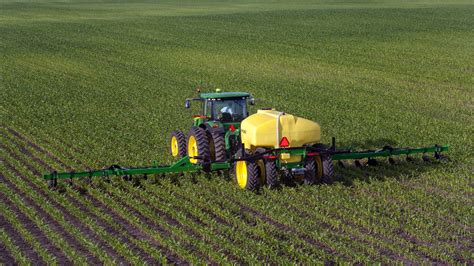The importance of crop yield in modern agriculture cannot be overstated. With the global population projected to reach 9.7 billion by 2050, the need for sustainable and efficient farming practices has never been more pressing. One crucial aspect of achieving optimal crop yield is the application of fertilizers. However, the method of fertilizer application can significantly impact the effectiveness of this practice. In this article, we will explore the importance of using the right fertilizer applicator to maximize crop yield.
Understanding Fertilizer Application
Fertilizer application is a critical component of crop management. Fertilizers provide essential nutrients such as nitrogen, phosphorus, and potassium that promote healthy plant growth and development. However, excessive or inefficient fertilizer application can lead to wasted resources, environmental pollution, and decreased crop yields. Therefore, farmers must carefully consider the type of fertilizer applicator to use on their fields.

Types of Fertilizer Applicators
There are several types of fertilizer applicators available, each with its unique characteristics and advantages. Some of the most common types of fertilizer applicators include:
- Broadcast applicators: These applicators spread fertilizers evenly across the field, often using a spinning disk or airblast system.
- Band applicators: These applicators apply fertilizers in narrow bands, typically 2-4 inches wide, to reduce waste and improve efficiency.
- Liquid applicators: These applicators apply fertilizers in liquid form, often using a sprayer or irrigation system.
- Granular applicators: These applicators apply fertilizers in granular form, often using a spreader or airblast system.
Benefits of Using the Right Fertilizer Applicator
Using the right fertilizer applicator can have a significant impact on crop yield and overall farming efficiency. Some of the benefits of using the right fertilizer applicator include:
- Improved fertilizer placement: By applying fertilizers directly to the soil or plants, farmers can reduce waste and ensure that nutrients are absorbed more efficiently.
- Increased crop yield: By providing plants with the necessary nutrients, farmers can promote healthy growth and development, leading to increased crop yields.
- Reduced environmental impact: By minimizing fertilizer waste and runoff, farmers can reduce the environmental impact of their farming practices.
- Cost savings: By reducing fertilizer waste and improving efficiency, farmers can save money on fertilizer costs.

Factors to Consider When Choosing a Fertilizer Applicator
When choosing a fertilizer applicator, farmers should consider several factors, including:
- Crop type: Different crops have different fertilizer requirements, so farmers should choose an applicator that is suitable for their specific crop.
- Soil type: The type of soil can affect the efficiency of fertilizer application, so farmers should choose an applicator that is suitable for their soil type.
- Field size: Larger fields may require larger applicators, while smaller fields may require smaller applicators.
- Budget: Farmers should consider their budget when choosing a fertilizer applicator, as some applicators may be more expensive than others.

Best Practices for Fertilizer Application
In addition to choosing the right fertilizer applicator, farmers should also follow best practices for fertilizer application. Some of these best practices include:
- Soil testing: Farmers should test their soil regularly to determine the nutrient levels and pH.
- Fertilizer calibration: Farmers should calibrate their fertilizer applicators regularly to ensure accurate application rates.
- Weather monitoring: Farmers should monitor weather conditions to avoid applying fertilizers during heavy rainfall or strong winds.
- Record keeping: Farmers should keep accurate records of fertilizer application rates, dates, and locations.

Conclusion
In conclusion, using the right fertilizer applicator is crucial for maximizing crop yield and reducing environmental impact. By choosing the right applicator and following best practices for fertilizer application, farmers can promote healthy plant growth and development, while also reducing waste and improving efficiency.





What is the importance of fertilizer application in crop management?
+Fertilizer application is crucial for providing essential nutrients to crops, promoting healthy growth and development, and increasing crop yields.
What are the different types of fertilizer applicators available?
+There are several types of fertilizer applicators available, including broadcast applicators, band applicators, liquid applicators, and granular applicators.
What are the benefits of using the right fertilizer applicator?
+The benefits of using the right fertilizer applicator include improved fertilizer placement, increased crop yield, reduced environmental impact, and cost savings.
